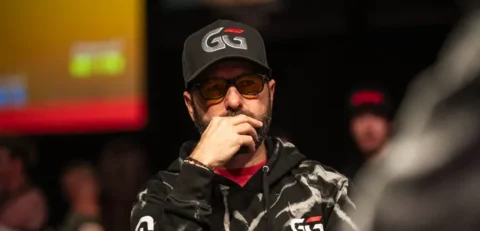Poker Showdown Value
Many players lose money by betting or raising when they would be better off just focusing on reaching the showdown. If your hand has showdown value, its strength lies in making it to the showdown and winning. Your aim should be to reach the showdown as cheaply as possible. One of the trickiest aspects of poker is determining whether your hand has true value or just showdown value (SDV). This depends not only on your hand but also on how your opponent plays. Understanding the concept of SDV, especially on the turn and river, can be challenging. But once you get the hang of it, it will greatly improve your game. Get sharper at poker with BLITZPOKER, where every hand matters and winning strategies come alive!
What Is Showdown Value in Poker?
Showdown value refers to a hand that might not be strong enough to bet for value, but could still win if it goes to a showdown. This concept is important for players who want to boost their long-term profits without risking too many chips.
Deciding if a hand has showdown value isn’t always straightforward, as it depends on things like the board texture, your opponent’s betting patterns, and the overall situation. Essentially, a hand with showdown value is one you expect to win at the showdown, but it’s not wise to bet because you’re unlikely to get called by a worse hand.
A simple way to think about it is: “A worse hand never calls, and a better hand never folds.” In situations where you can’t get value from betting, it’s often better to check and let the hand go to showdown. You might win without putting more chips at risk.
Example of Showdown Value
Stacks & Stats:
UTG (₹100)
MP (₹100)
CO (₹100)
Hero (₹100)
BB (₹100)
SB (₹100)
Preflop: Hero is on the Button with 8 7
7
3 players fold, Hero raises to ₹3, SB folds, BB calls.
Flop (₹6.50): 2 K
K A
A (2 Players)
(2 Players)
BB checks, Hero bets ₹4, BB calls.
At this stage, Hero doesn’t have a strong hand, just a backdoor straight and flush draw. The bet is a continuation bet, representing strength.
Turn (₹14.50): 7 (2 Players)
(2 Players)
BB checks, Hero checks.
Hero pairs the 7, giving some value to the hand. However, betting here is risky. Worse hands are unlikely to call, and BB may have a stronger hand. So, Hero checks to aim for a cheap showdown.
River (₹14.50): 6 (2 Players)
(2 Players)
BB checks, Hero checks.
The river hasn’t made much difference. Hero’s pair of 7s has some showdown value, but betting could backfire, as weaker hands might not call. By checking, Hero safely gets to a showdown, and if BB has missed their draw or has a weaker hand, Hero can win without risking more chips.
This example highlights how showdown value works. Hero’s hand isn’t strong enough to bet for value, but it’s good enough to possibly win at showdown.
Distinguishing Hand Strength from Showdown Value
A key part of poker strategy is evaluating an opponent’s range and betting behaviour early in the hand, and thinking about how this might affect later betting stages. Showdown value is vital in this process. A value bet is made when you believe your hand is ahead of your opponent’s range and you want to maximise winnings. However, showdown value comes into play when your hand is decent—not strong enough to bet for value, but too good to bluff. At showdown, this hand could still win without needing to bet.
Maximising Showdown Value at the River
By the time you reach the river, knowing how to evaluate your showdown value is crucial. There are moments when bluffing or betting for value isn’t a good option, but your hand might still be strong enough to win at showdown. To figure out if your hand has showdown value, you need to assess your opponent’s range carefully. This is where ‘situational poker’ comes in. The way you play depends on the specific situation and your style. Even with the same hand, your approach can change based on various factors, influencing whether you rely on pure hand strength or focus on its showdown value.
The post Poker Showdown Value — Meaning, Examples & More appeared first on BLITZPOKER.
















